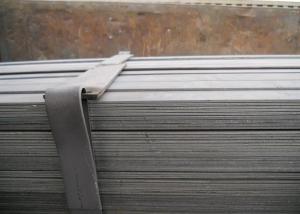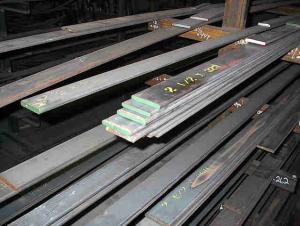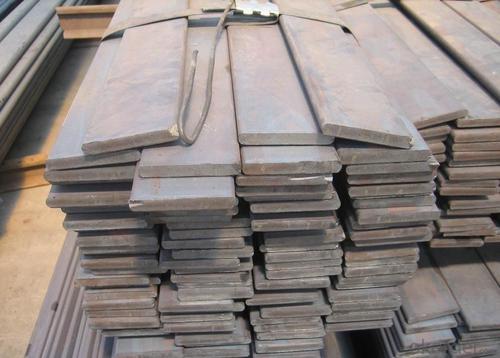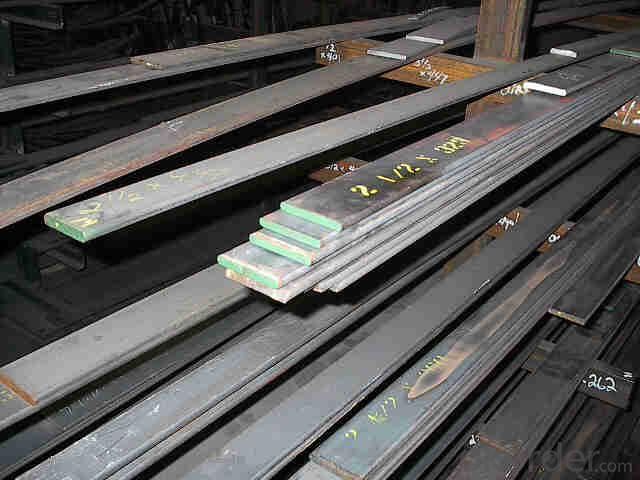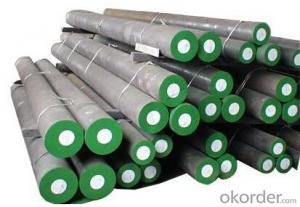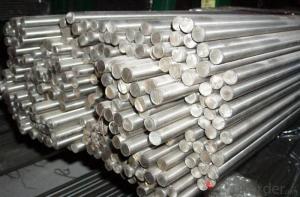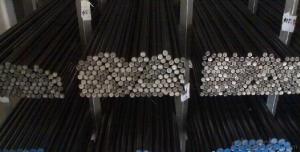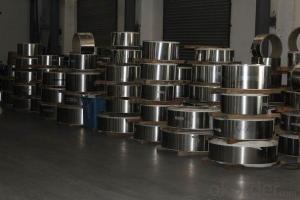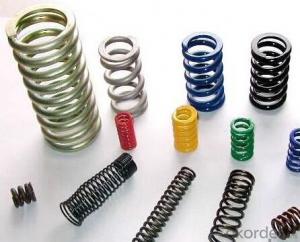Spring Steel
- Loading Port:
- China Main Port
- Payment Terms:
- TT or LC
- Min Order Qty:
- 100Tons m.t.
- Supply Capability:
- 500Tons Per Day m.t./month
OKorder Service Pledge
OKorder Financial Service
You Might Also Like
Spring Steel can be divided into two types. One is carbon spring steel, and other one is alloy spring steel.
Alloy spring steel is based on carbon spring steel, by adding one or more alloying elements to improve the mechanical properties, hardenability and other properties to meet the requirement for manufacturing all kinds of spring steel.
Specification of Spring Steel:
-Material: 70Si2CrA
-Production: Hot rolled or cold rolled
-Standard: GB/T·5218-1999
-Type: Spring Steel
-Alloy or no: Alloy
Chemical Composition:
C | Mn | Si | Cr |
0.65~0.75 | 0.40~0.60 | 1.40~1.70 | 0.20~0.40 |
S | P | Ni | |
≤0.030 | ≤0.030 | ≤0.030 |
Mechanical Properties:
-Annealing Condition:
1, Tensile Strength: σb/MPa:≤835
2, Elongation: δ/%:≥8
-Quencher condition:
1, Tensile strength: σb/MPa:785~1175
2, Elongation: -
Usage/Applications of Spring Steel:
For manufacturing all kinds of flat spring or round spring with small sections, clockwork spring,
Packaging & Delivery of Spring Steel:
-Packing Detail: The products can be packed in bundles by steel wires.
-Marks:
1, Tag marks: the tag marks will be tied up to each bundle of the products. The information is usually including supplier’s logo and name, product name, made in China, products’ specifications, the painted color and other information requested by customers.
2, Color marks: we will paint both ends of the bundles of these products to make sure that they are more evident. It’s will be more convenient for the customers to distinguish them at the destination port.
-Delivery Detail:
1, Delivery time: 30~45 working days after receive buyer’s T.T. or L/C.
2, Delivery status should be written in the contract. (Heat treatment or no)
Payment:
-Invoicing on theoretical weight or actual weight as customer’s request.
-FOB, CFR or CIF.
-Regular terms of payment:
1, 30% payment in advance, the remaining balance (70% payment) against the copy of B/L. 100% payment before shipment.
2, 30% payment in advance, the remaining balance (70% L/C) against the copy of B/L. 100% payment before shipment.
3, Negotiable.
Photos of Spring Steel:
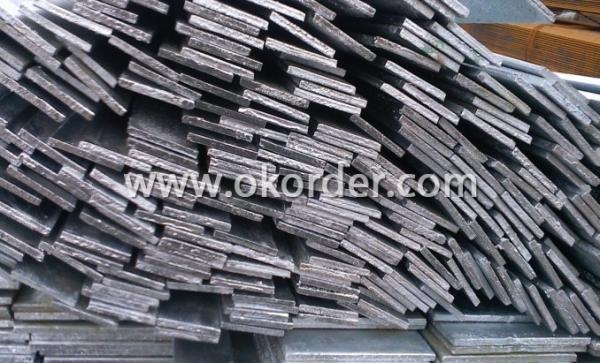
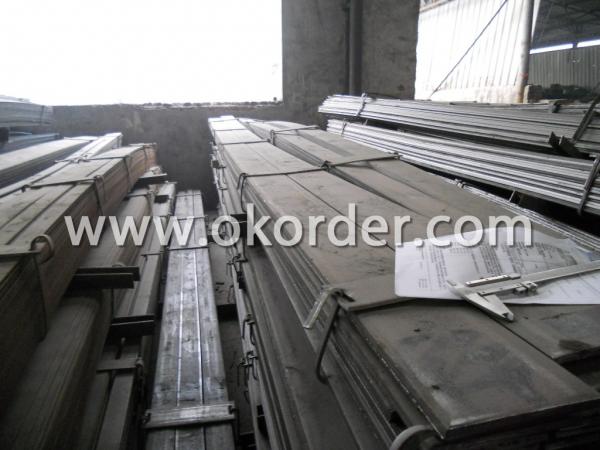
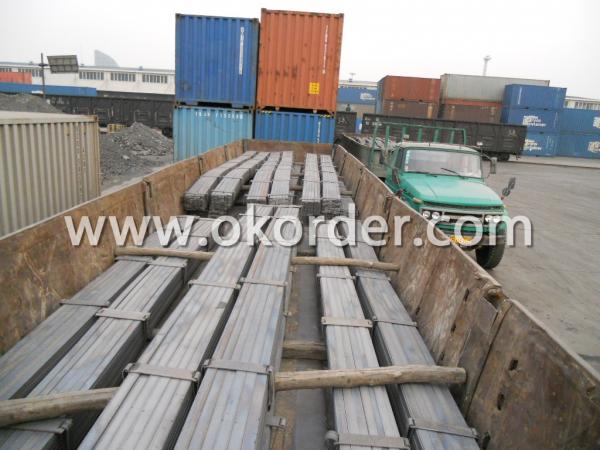
- Q: Can special steel be used in the production of gears?
- Yes, special steel can be used in the production of gears. Special steel is often chosen for gear manufacturing due to its high strength, durability, and resistance to wear and fatigue. It allows for the production of gears that can withstand heavy loads, high speeds, and harsh operating conditions.
- Q: How does stainless steel contribute to the automotive industry?
- Stainless steel contributes to the automotive industry by providing strength, durability, and corrosion resistance in various automotive components such as exhaust systems, body panels, and engine parts. Its ability to withstand extreme temperatures and harsh conditions make it a preferred material for manufacturing high-performance vehicles. Additionally, stainless steel's aesthetic appeal and low maintenance requirements make it suitable for decorative purposes in car interiors and exteriors.
- Q: What are the different types of electrical steel?
- There are several types of electrical steel, including grain-oriented electrical steel (GOES), non-grain-oriented electrical steel (NGOES), and silicon steel.
- Q: How does special steel perform in high-temperature environments?
- Special steel performs exceptionally well in high-temperature environments. It has a high melting point, excellent resistance to heat and thermal shock, and can retain its strength and hardness even at elevated temperatures. This makes it highly suitable for applications such as aerospace, power generation, and automotive industries, where materials are exposed to extreme heat and require exceptional performance and durability.
- Q: What are the challenges in forging special steel?
- Forging special steel poses several challenges, primarily due to its composition and properties. One challenge is achieving the desired microstructure and alloy distribution throughout the steel during the forging process. Special steels often contain complex alloys, which can be difficult to evenly distribute and maintain during forging. Another challenge is controlling the temperature and heat treatment processes to avoid any detrimental effects on the steel's mechanical properties. Special steels are sensitive to temperature changes, and improper heating or cooling can lead to structural weaknesses or loss of desired properties. Additionally, forging special steels may require specialized equipment and techniques to accommodate their unique characteristics, making the process more intricate and demanding.
- Q: How does special steel perform in pharmaceutical applications?
- Due to its unique properties and characteristics, special steel is highly sought after in pharmaceutical applications. Its exceptional corrosion resistance is especially important in pharmaceutical environments where chemical substances and aggressive cleaning agents are commonly used. This corrosion resistance ensures the steel remains durable and maintains its integrity over time. Furthermore, special steel is renowned for its strength and durability, making it suitable for applications that involve heavy loads or frequent use. This strength allows the steel to withstand the demanding requirements of pharmaceutical processes, such as mixing, grinding, and sterilization, without compromising its structural integrity. Another significant advantage of special steel in pharmaceutical applications is its hygienic properties. It is highly resistant to bacterial growth and easy to clean, making it perfect for environments where cleanliness and sterility are of utmost importance. The smooth surface of special steel prevents the accumulation of dirt, bacteria, and other contaminants, reducing the risk of contamination and ensuring the safety and quality of pharmaceutical products. Moreover, special steel offers excellent temperature resistance, enabling it to endure extreme temperatures and thermal cycling commonly encountered in pharmaceutical processes. This thermal stability guarantees that the steel retains its mechanical properties and dimensional stability, even under fluctuating temperature conditions. Overall, special steel's corrosion resistance, high strength, hygienic properties, and temperature resistance make it a trustworthy and versatile material for pharmaceutical applications. Its exceptional performance in these challenging environments contributes to the production of safe and high-quality pharmaceutical products.
- Q: How does special steel perform in marine environments?
- Special steel is specifically designed to withstand the harsh conditions of marine environments. It offers superior corrosion resistance, high strength, and excellent durability, making it highly suitable for applications in marine settings. This type of steel can effectively resist the corrosive effects of saltwater, moisture, and other environmental factors, ensuring long-term performance and reducing maintenance requirements.
- Q: What are the factors that affect the mechanical properties of special steel?
- The mechanical properties of special steel are influenced by several factors, including the chemical composition of the steel, the heat treatment process, the presence of impurities or alloying elements, the microstructure of the steel, and the manufacturing process used. Additionally, factors such as grain size, hardness, tensile strength, ductility, and toughness also play a significant role in determining the overall mechanical properties of special steel.
- Q: What are the different cutting grades of special steel?
- There are several cutting grades of special steel, including high-speed steel (HSS), tool steel, stainless steel, and alloy steel. Each grade has specific properties and characteristics that make it suitable for different cutting applications.
- Q: Can special steel be used in the manufacturing of consumer goods?
- Indeed, the utilization of special steel in the production of consumer goods is possible. Special steel refers to a specific type of steel that has been engineered to possess exceptional properties, such as increased strength, corrosion resistance, heat resistance, or wear resistance. These enhanced characteristics render it suitable for a broad range of applications, including the manufacturing of consumer goods. Consumer goods encompass a diverse array of products, ranging from kitchen appliances and electronics to automobiles, tools, and furniture. Special steel can be employed in various components and parts of these goods to enhance their performance and durability. For instance, in kitchen appliances, special steel can be utilized to fabricate blades, heating elements, or cooking surfaces, thereby improving cutting efficiency, heat distribution, and resistance to corrosion. In electronics, special steel can be employed in the production of casings, connectors, or springs to ensure durability, conductivity, and resistance to temperature fluctuations. Furthermore, special steel can also find application in the manufacturing of consumer goods that demand high precision and reliability. In the automotive industry, for example, special steel can be used for engine components, chassis, or safety features, providing superior strength, impact resistance, and structural integrity. Likewise, in the production of tools and equipment, special steel can be employed to manufacture drill bits, cutting tools, or machine components, guaranteeing longevity, precision, and optimal performance. In conclusion, special steel offers distinct advantages over conventional steel due to its unique properties, making it an ideal material choice for the production of consumer goods. Its enhanced strength, corrosion resistance, heat resistance, or wear resistance characteristics can significantly enhance the performance, durability, and reliability of consumer products, thereby meeting the demands and expectations of consumers.
1. Manufacturer Overview
| Location | Jiangsu, China |
| Year Established | 2003 |
| Annual Output Value | Above US$ 30 Million |
| Main Markets | Asia-Pacific; Middle east |
| Company Certifications |
2. Manufacturer Certificates
| a) Certification Name | |
| Range | |
| Reference | |
| Validity Period |
3. Manufacturer Capability
| a) Trade Capacity | |
| Nearest Port | Shanghai. |
| Export Percentage | 20% - 30% |
| No.of Employees in Trade Department | 10-20 People |
| Language Spoken: | English; Chinese |
| b) Factory Information | |
| Factory Size: | Above 100,000 square meters |
| No. of Production Lines | 2 |
| Contract Manufacturing | OEM Service Offered; |
| Product Price Range | Average |
Send your message to us
Spring Steel
- Loading Port:
- China Main Port
- Payment Terms:
- TT or LC
- Min Order Qty:
- 100Tons m.t.
- Supply Capability:
- 500Tons Per Day m.t./month
OKorder Service Pledge
OKorder Financial Service
Similar products
Hot products
Hot Searches
Related keywords

